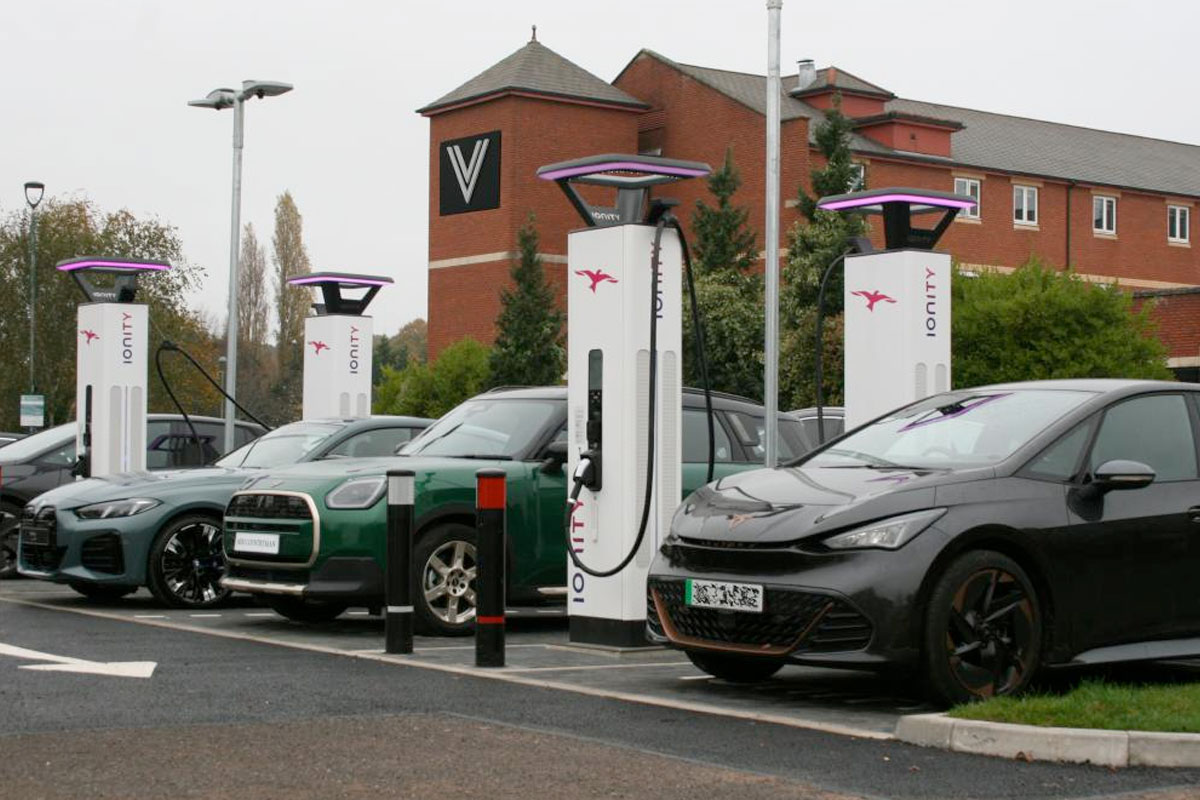Despite what you may have read in the press, global EV sales are showing no signs of slowing, and the accompanying charging infrastructure is set for a dramatic expansion, according to the International Energy Agency’s (IEA) latest Global EV Outlook.
The new report predicts that EVs are on course to make up more than two in five cars sold, while fast charging capacity worldwide will increase tenfold by 2030.
The IEA notes that more than 17 million electric cars were sold in 2024, lifting EVs to just over 20% of the global car market for the first time. Momentum has carried into 2025, with first‑quarter sales up 35% year‑on‑year and every major region setting fresh records.
China continues to lead the charge – electric cars represented close to half of all Chinese car sales in 2024, with more than 11 million units sold, matching the entire world’s tally from only two years earlier. Emerging markets in Asia and Latin America together posted a 60% surge, while the United States crossed the symbolic 10% threshold for EV market share. Europe, by contrast, plateaued at around one in five sales as subsidies tapered off.
“Our data shows that, despite significant uncertainties, electric cars remain on a strong growth trajectory globally. Sales continue to set new records, with major implications for the international auto industry,” said IEA Executive Director Fatih Birol.
“This year, we expect more than one in four cars sold worldwide to be electric, with growth accelerating in many emerging economies. By the end of this decade, it is set to be more than two in five cars as EVs become increasingly affordable.”
Affordability is a recurring theme in the Outlook. On average, battery electric car prices fell in 2024 as competition intensified and battery costs declined. In China, two‑thirds of EVs were already cheaper than their petrol‑powered equivalents even before incentives. However, buyers in Europe and the United States still face price premiums of roughly 20% and 30% respectively.
Running costs tell a different story: at today’s energy prices, an electric car charged at home in Europe remains around half the cost per mile of a conventional model, even if oil were to drop to $40 a barrel.
Trade flows are reshaping the market too. Almost one‑fifth of global EV purchases involve imported vehicles, and China alone exported 1.25 million electric cars in 2024, driving down prices in many developing economies.
The report devotes special attention to electric trucks, where global sales jumped 80% last year to claim nearly 2% of the truck market. Chinese operators are already finding some heavy‑duty electric lorries cheaper to own than diesel rivals thanks to significantly lower running costs.
Improvements in charging infrastructure
More than 1.3 million public chargepoints were installed worldwide last year – matching the total number in service as recently as 2020. Ultra‑fast units rated above 150 kW increased by about 50% and now make up nearly a tenth of all public fast chargers.
China boasts at least one public charger for every ten electric cars, and the European Union one for every 13. But despite recently crossing the threshold of 100,000 chargers installed, the United Kingdom, and the United States, is seeing their EV charger rollouts lag behind vehicle uptake in 2024, leaving more EVs per chargepoint than a year earlier. The IEA attributes part of the gap to higher rates of home‑charging availability in those two markets.
The number of chargers isn’t the only significant development in the marketplace, as advances in battery chemistry and charging technology are shrinking refill times. In March 2025, Chinese manufacturer BYD demonstrated a 1 MW Super‑e platform capable of adding roughly 400 km of range in five minutes. Thanks to this, the IEA now believes megawatt charging – once limited to heavy goods vehicles – will soon reach light‑duty cars, though notes that grid upgrades and smart energy storage will be essential to cope with the extra load.

